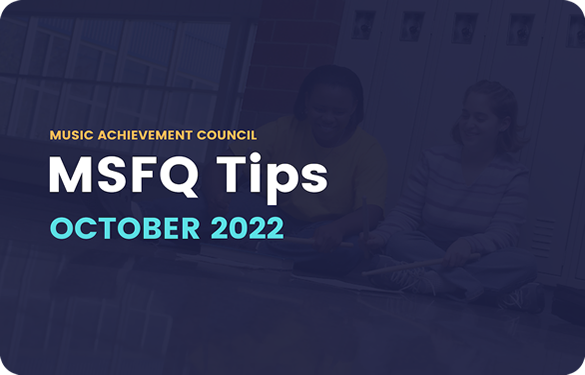RECRUITMENT TIPS
Find famous people that play or have played instruments, and use that as part of your recruitment presentation. Focus on the folks with which your beginning band and orchestra students will have name recognition. You can make a bulletin board with photos of the celebrities and their instruments, or you can include pictures or videos in social media content. The principal purpose of this is not to “sell” music participation using celebrity status but rather to show would-be instrumentalists that you can have a multitude of talents and interests, and that band and orchestra can be one of many.
You love acting? Great! You can love acting and still be a musician. Obi-Wan Kenobi actor Ewan McGregor played the horn in his younger days. You want to be a pop star? Awesome! You can work toward that goal and still have meaningful experiences in your school band and orchestra program just like superstar Lizzo did on flute during her high school and collegiate marching band days. These are just two of many examples. You may find it fun seeing the variety of people that have prioritized learning an instrument throughout the course of their lives!
RETENTION TIPS
There are times throughout the school year where the responsibilities that come with participating in band and orchestra may overlap with a fun activity that the rest of the student body gets to participate in. Perhaps the student body at football on Friday night wears fun costumes that coordinate with themed game days while the marching band is in their uniforms. Perhaps the dances on the school calendar tend to fall close to mandatory music events that keep everyone from participating in both. Where possible, see if you can make some slight changes to allow students to be valued members of their school bands and orchestras and feel a part of the entire student body. For example, if there is a themed football game, maybe you can allow band members to wear head gear or accessories that match the theme but could be removed for the half time performance.
If yearly music events make it difficult for music students to participate in something that the rest of their classmates can, perhaps it is time to swap that commitment out for a different one. Wherever you observe an instance of a student having to make a choice between being a model member of their school music ensemble or having a meaningful memory that other non-music students get to experience, brainstorm ways that students can do both. If a music event keeps students from fully participating in a special non-music event, you are relying on them choosing music every time. Minimize the number of times they must choose, and it should be less difficult to hold onto your ensemble members and easier to have the music students feel like a part of the greater school community!
SUCCESS TIPS
Start planning what music you want to perform with your groups in the spring now. Order scores as soon as you have settled on what you want to play so that you can use the pockets of free time that tend to show up during the school day before long holidays to study those scores and be even more prepared for great rehearsals in the spring. While everyone who is able should use their Thanksgiving and winter breaks as a break, it doesn’t hurt to have your spring scores around just in case you want to work ahead.
Thinking in advance about concert programming doesn’t only provide you more time to get acquainted with the scores — this foresight allows you more time to order any mutes or percussion equipment that you may need to acquire to perform a piece. It also allows more time to think of and create any supplemental materials that could help you teach the theory, history, and specialized technique needed for a specific work. If you order the entire set when you order the scores, you can send parts home with students over vacation in the event they want to pick up their instruments and get a jump start on learning their parts!
Sincerely,
Sarah J. Labovitz, D.M.A.
Chair of the Department of Music
Associate Director of Bands
Coordinator of Music Education
Arkansas State University


